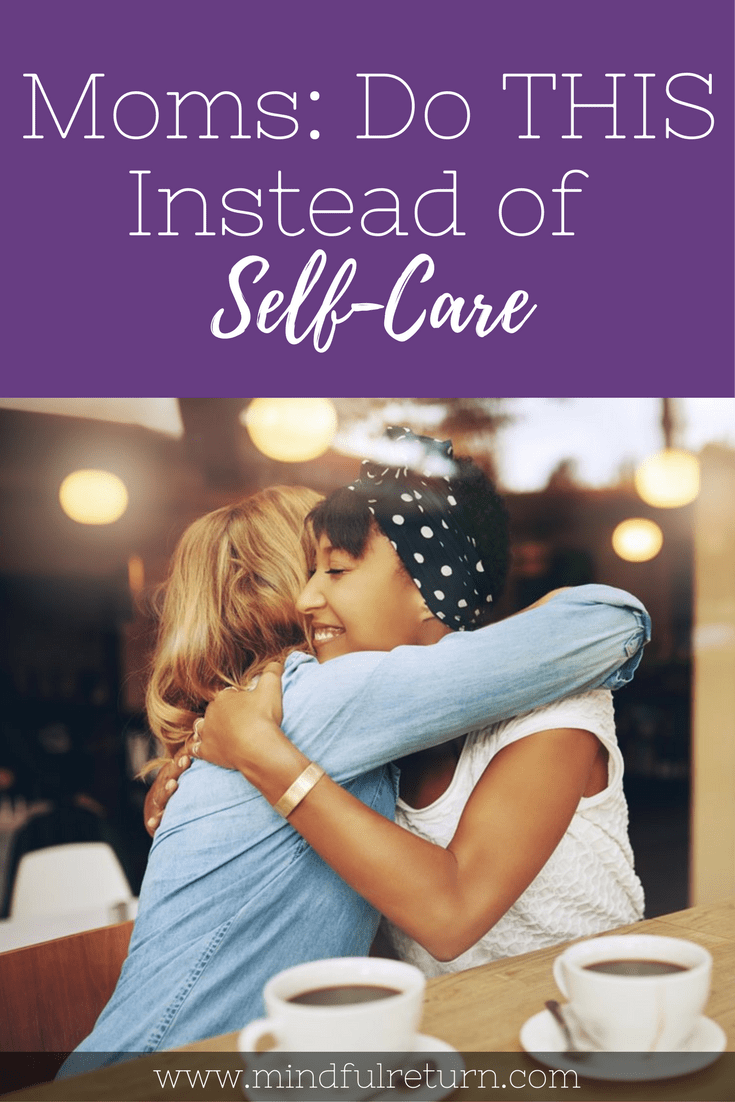 Sometimes I walk onto an airplane open to the possibility that the person sitting next to me may be fascinating to speak with. (I’m certainly glad I was in that state of mind when I sat next to Rachel Thomas, President of Lean In, and subsequently wound up interviewing her for this post on how to start a working mom posse at your office.) And other times, I enter the airplane ready to go deep into my own world of carefully-guarded self-care me-time. Whether to read a book, write in a journal, or get some work done.
Sometimes I walk onto an airplane open to the possibility that the person sitting next to me may be fascinating to speak with. (I’m certainly glad I was in that state of mind when I sat next to Rachel Thomas, President of Lean In, and subsequently wound up interviewing her for this post on how to start a working mom posse at your office.) And other times, I enter the airplane ready to go deep into my own world of carefully-guarded self-care me-time. Whether to read a book, write in a journal, or get some work done.
A few weeks ago, a lawyer colleague of mine had that choice to make. And I’m delighted she struck up a conversation with her fellow traveler. The person she happened to sit next to (and subsequently connect me with) was Dr. Suniya Luthar, Foundation Professor of Psychology at Arizona State University.
Dr. Luthar is an expert on resilience. With her colleague, Dr. Lucia Ciciolla, she recently published two fascinating papers based on work she has done studying well-educated mothers. These papers, appearing in Developmental Psychology, are entitled “Who Mothers Mommy? Factors That Contribute to Mothers’ Well-Being” and “What It Feels Like to Be a Mother: Variations by Children’s Developmental Stages.” (Here’s the punchline of the later article: the teen years are the worst for mothers, by far. Gee, I can’t wait for that.)
In my phone conversation with Dr. Luthar, I nearly fell out of my chair when she started questioning all the modern emphasis on “self-care.” What?! But I thought taking care of ourselves is what we are all supposed to be doing to avoid burnout. Yet “self-care” is, indeed, getting to be one of those words that might fall into the category of being overused in pop culture. (Like “mindful” to be sure. I’m striking out here, by talking about both self-care and mindfulness on this blog. Yikes!) So I kept listening.
If “self-care” isn’t the be-all-and-end-all, what does Dr. Luthar’s research show that we, as well-educated mothers, are supposed to be doing?
The advice we should be listening to, she says, is not “take more care of yourself.” Instead, it’s “prioritize being taken care of.”
If you read her paper on mothers’ well-being, she talks about the “strong protective potential of close, authentic relationships in buffering women through the myriad challenges of motherhood” and the universal importance of “protective interpersonal forces.”
“…as unconditional acceptance is critical for children, so is it critical for mothers who must provide it. And mothers, like children, benefit greatly when they know they have reliable sources of comfort when in distress.”
Luthar also found that while relationships with spouses were important, they were not determinative of well-being. Even more interestingly, she notes that:
“having close friendships may help to sustain the marital relationship by reducing the burden on the marriage to fulfill all of one’s emotional needs. In the interest of their own well-being and even that of their marriages, therefore, our findings suggest that women must deliberately prioritize fostering these close personal friendships.”
In her most recent work, Luthar has developed and implemented an intervention for working mothers who are also physicians at Mayo Clinic, AZ. The whole idea of the Authentic Connections Group (ACG, AuthenticConnectionsGroups.org) program is for each mom to select a “go-to person” with whom she frequently discusses serious topics. This effort is a brilliant retention tool on the part of Mayo and other employers, if you ask me.
To be clear, Dr. Luthar feels we still need self-care. (She said she herself “would go batty without built-in alone time and yoga classes!”) Yet her point is that while we routinely hear so much about self-care, we don’t hear so much about what she calls the “critical notion that moms must prioritize being tended, being mothered themselves.”
So, What Steps Do We Take to Be “Taken Care Of”??
When I spoke with Luthar, she said we all need a “blanket of love” to make it through this motherhood thing in a healthy way. So how to create that blanket?
First, we have to prioritize it. KNOW that it’s something that matters and that shouldn’t be relegated to the back burner. Luthar’s paper doesn’t offer concrete suggestions for how to build and foster these relationships. But here are a few ideas. These are things I’ve personally done to prioritize those close and authentic relationships. Even with people who may not live nearby:
- Ensure friend time gets on the calendar. My husband and block time with friends during our weekly Saturday meeting. It is actually an agenda item.
- Join groups that ritualize that time and make it an automatic part of life. I’m part of a book club (one that’s been together for 11+ years now) and a group of Jewish moms, both of which meet monthly. It’s a planned, predictable time with people I care deeply about.
- Take vacations to see people, not just places. This past summer, we took a family trip to North Carolina, specifically to see people we love and hadn’t seen in a long time. We worked in plenty of mac ‘n cheese, BBQ, and kid-friendly activities. (We LOVE the Museum of Life + Science in Durham and the kids’ audio tour at the Biltmore, narrated by Cedric, the Vanderbilt’s dog!) And spent time reconnecting.
- Text more with close friends. I took a cue on this from some of my (very wise) Mindful Return course alums, and began a daily gratitude texting chain with one of my best friends from college.
- Build friend time into work travel. I’m about to go on a work trip. I intentionally built a day into the trip (before my conference starts) to see my college roommate (and meet her babies!).
Don’t forget professional supports, and organized groups, too. From therapists, to postpartum doulas, to postnatal yoga classes, hospital new moms groups, and working parent groups at your office, there are so many ways to find meaningful connections.
So has Dr. Luthar convinced me to stop talking about self-care and micro-self-care? Nope. The introvert in me needs alone time. And I know things like my daily yoga practice help me regain sanity daily. But I think it’s good to know that when it comes to prioritizing how to spend that so-called self-care time, we should keep “others taking care of us” at the top of the list. Oh, and that from time to time, we should talk to our neighbor on the airplane.
Want to join an authentic, supportive community of new working moms heading back to work around the time you are? Join the next session of Mindful Return.



Great article! It got me thinking that more companies should help facilitate the connection among Moms which benefits not just the Moms but the company too. Happier employees tend to be more successful employees. We have so many other groups: Next Generation Network (Millennials) and Women’s Network.
Thanks, Bridget! Spot on. Feel free to reach out to Dr. Luthar if you know of any companies that would like assistance in setting up something like what she’s doing at Mayo.
This is such a fantastic article and I am going to share it on Linked In, not just FB. For me, fostering connection IS self-care. I recently had a weekend to myself. Hubs was away on a yguides weekend with my daughter. Instead of spending the weekend “doing”self care, (if defined by mani pedis, binge watching Netflix etc) invited a girlfriend to town to spend the weekend sharing deeply, connecting , with no structure and called it a weekend of self care. We are both part of a recovery movement http://www.sherecovers.co whose guiding principles are that we are all recovering from something- workaholism, grief, divorce all the way to drug addiction, disordered body image, alcohol use/misuse/abuse and that we need collaboration not competition to get through this thing called life. Interesting side note, the girlfriend I invited down, I had met in person once at a She Recovers conference, am in an online recovery group with and we attended a small group of local women (in Raleigh!) who are all recovering from something. There is depth in sharing and connection. It is energizing and healing.
Thanks so much for sharing your thoughts here, Shauna. Glad it resonated, and I love that your weekend of self-care was all about connection!
“Who mothers mommy?” Love it. This is such a different perspective on self-care – be taken care of! I will not get into the cliche of “we are all busy,” but we ARE and finding those micro bursts of self-care. Having built-in time with friends provides that buffer when all h__ breaks loose with the kiddos at home, a time to regroup, let off steam, etc.
Community has truly saved me, too. Thanks so much for weighing in, Julie.